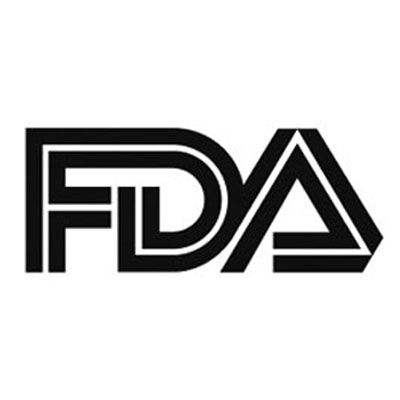FDA Grants Priority Review to Melflufen for Triple-Class Refractory Multiple Myeloma
The FDA granted Priority Review to Melphalan flufenamide in combination with dexamethasone for the treatment of adult patients with multiple myeloma that is refractory to a proteasome inhibitor, an immunomodulatory agent, and an anti-CD38 monoclonal antibody.

The FDA has granted Priority Review to Melphalan flufenamide (melflufen) in combination with dexamethasone for the treatment of adult patients with multiple myeloma that is refractory to a proteasome inhibitor, an immunomodulatory agent, and an anti-CD38 monoclonal antibody. The Prescription Drug User Fee Act has been scheduled for February 28, 2021, to review the New Drug Application, Oncopeptides AB announced in a press release.1
This decision was based on the findings from the pivotal phase 2 HORIZON study (NCT02963493), which evaluated intravenous melflufen plus dexamethasone as treatment of patients with relapsed/refractory multiple myeloma.
“This is very exciting news. It is an important milestone for Oncopeptides, and a major step in making melflufen available for patients with multiple myeloma, who desperately need new treatment options”, said Marty J. Duvall, chief executive officer of Oncopeptides AB, in a statement. “I am looking forward to a continuing dialogue with the FDA while we make the product available to relapsed/refractory multiple myeloma patients in the US through an expanded access program, in an FDA approved trial called sEAPort.”
The overall response rate (ORR) with the combination was 26%, according to findings reported in March 2020 for the HORIZON study. Two patients with unconfirmed responses in January has now been confirmed for an ORR of 31% in the intention-to-treat population. This update also demonstrated that the safety profile of melflufen was consistent with the prior results shared from the HORIZON study, with the most common adverse events (AEs) were hematologic. A low incidence of non-hematologic AEs was reported.2
Efficacy data from this study were presented at the 2019 American Society of Hematology (ASH) Annual Meeting, in which 113 patients had a response to the treatment for an ORR of 28% and a stringent complete response in 1 patient. Additionally, 9% of patients had a very good partial response, and 19% achieved a partial response. The clinical benefit rate was 40%.3
The median progression-free survival was 4.0 months, (95% CI, 3.7-4.6), and the median overall survival was 11.2 months (95% CI, 8.1-13.9). The median duration of response was 4.4 months (95% CI, 3.6-8.3).
According to the presentation, grade 3 treatment-related AEs occurred in 24% of patients, and grade 4 AEs were observed in 49%. The most common grade 4 treatment-related AEs included thrombocytopenia (36%) and neutropenia (31%). Non-hematologic treatment-related AEs were not common in the study, but the most common included pneumonia (3%), fatigue (2%), and upper respiratory tract infection (2%). In addition, 20% of patients did not have serious treatment-related AEs, and no AEs had led to death in the study.
Twenty-nine percent of patients were on ongoing treatment as of May 2019, and 71% of patients had discontinued treatment, mostly due to progressive disease in 69%, AEs in 20%, and other reasons in 12%.
Melflufen, a first-in-class anticancer peptide-drug conjugate, has demonstrated cytotoxic activity against myeloma cell lines that are resistant to other treatments.
Patients included in the study had a prior diagnosis of multiple myeloma with disease progression, measurable disease, at least 2 prior lines of treatment that they later became refractory to, a life expectancy of at least 6 months, and an ECOG performance status of 2 or lower. Patients were ineligible to enroll if they had evidence of mucosal or internal bleeding, were platelet-transfusion refractory, had known infection, were diagnosed with another malignancy that required treatment, any illnesses that may infer with treatment at the investigator’s discretion, or had prior treatment that did not match the study protocol.
<< View more from the pivotal phase 2 HORIZON study
References
1. FDA grants Priority Review of melflufen for patients with triple-class refractory multiple myeloma. News Release. Oncopeptides AB. August 29, 2020. Accessed August 31, 2020. https://bit.ly/3lB8cpB
2. Oncopeptides announces 26% overall response rate of melflufen in triple-class refractory multiple myeloma patients from the pivotal horizon study. News release. Oncopeptides AB. March 26, 2020. Accessed August 31, 2020. https://prn.to/39kEsFR
3. Mateos MV, Oriol A, Larocca A, et al. Clinical activity of melflufen in patients with triple-class refractory multiple myeloma and poor-risk features in an updated analysis of horizon (op-106), a phase 2 study in patients with relapsed/refractory multiple myeloma refractory to pomalidomide and/or daratumumab.Blood. 2019;(134);Suppl 1: 1883.
Gasparetto Explains Rationale for Quadruplet Front Line in Transplant-Ineligible Myeloma
February 22nd 2025In a Community Case Forum in partnership with the North Carolina Oncology Association, Cristina Gasparetto, MD, discussed the CEPHEUS, IMROZ, and BENEFIT trials of treatment for transplant-ineligible newly diagnosed multiple myeloma.
Read More